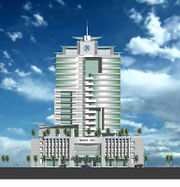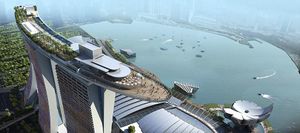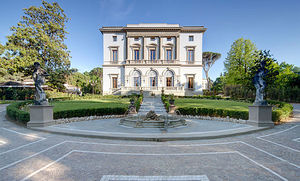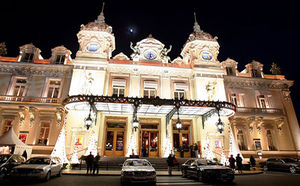Wetwork
| This page is a work in progress by its author(s) and should not be considered final. |
| The Incorporated States of WetWork WetWork
|
|||
|---|---|---|---|
|
|||
| Motto: " Making the world safer one assassination at a time." | |||
| Anthem: "March of Conquerors" | |||
| Region | Ocea | ||
| Capital | Free Haven | ||
| Largest city | Cinn City | ||
| Official languages | Neo WetWorkian | ||
| Recognised national languages | English (de facto) | ||
| Demonym | WetWorkiean | ||
| Government | Semi-Democratic dictatorship | ||
| - | Dic-tat, Ceo ex officiob |
Nailo Na'asbeth | |
| - | Vice Dic-tat (Chancellor) | TBA | |
| - | Sub Dic-tat (Secretary) | TBA | |
| - | Deputy Dic-tat (Minister) | TBA | |
| Legislature | Praetorian | ||
| - | Upper house | High Chamber of the Lords | |
| - | Lower house | Low Chamber of Commoners | |
| History | |||
| - | Founding | 2011AD | |
| - | Installation of the mission statement | 2011 | |
| - | Foundation of the Empire | 2014 | |
| Area | |||
| - | Total | 44,579,000 km2 17,212,000 sq mi |
|
| - | Water (%) | 32 | |
| Population | |||
| - | 2015 estimate | 2.839 billion | |
| - | Density | 63/km2 163.2/sq mi |
|
| GDP (nominal) | 2015 estimate | ||
| - | Total | 205 trillion Debits a year | |
| - | Per capita | 72,381 Debits | |
| Gini (2015) | 0.137 low |
||
| HDI (2016) | 0.6478 medium |
||
| Currency | Debit ( D+) (D+) |
||
| Time zone | Cinn Mean Time (00 CMT)f | ||
| Date format | dd ˘ mmm ˘ yy | ||
| Drives on the | left | ||
| Calling code | 007 | ||
| ISO 3166 code | NTJ | ||
| Internet TLD | .ww | ||
States of WetWork ,officially The Incorporated States of WetWork The Incorporated States of WetWork is a massive, safe nation, ruled by Dic-tat Nailo Na'asbeth.
With an even hand, Remarkable for its frequent executions, parental licensing program, and punitive income tax rates.
WetWorkers have some civil rights, but not too many, enjoy the freedom to spend their money however they like, to a point, and take part in free and open elections, although not too often.
Insurance companies charge extortionate premiums to cover homes near waterways.
Crime, especially youth-related, is totally unknown, thanks to a very well-funded police force and progressive social policies in education and welfare. WetWork's national animal is the Giant owl, which soars majestically through the nation's famously clear skies.
Contents
History
Main Article: History of WetWork
History - Once the legal, security, accounting, international affairs, human resources, and strategic planing analysis acquisitions and statistics divisions (SPAAS) of the now defunct Hydro-Dyno Heavy Industries corp. These divisions were sized and incorporated by the senior corporate raider the honorable Dic-tat Luis of (SPAAS) from HHIC.
.
H.A.R.P. security forces corporate conflicts
Fighting ensure as upper management attempted a illegal overseas proxy fight to block succession using a mercenary motorized infantry battalion. H.A.R.P. security forces led by Dic-tat Luis and the five division heads fought bravely for two days from 17:01 Friday April 18 to 8:01 Monday morning April 20 pending finalized contracts of it's IPO making it recognizable by the SEB and other governments as being a entity ending hostilities witch were televised on BNN news network. Later that day the CEO of HHIC took his own life distraught over the devaluation of company stock. HHIC is now Icon group.
1st Land acquisition
Temporarily moving 1.5 million people to the two leased offshore islands archipelago of Bermuda. The newly formed WetWork prospered 23 months in the world as corporate privateer's.
Dic-tat Luis retired and lives on a small island of the archipelago of Bermuda, Dic-tat Naasbeth is Dic-tat for life, current President & Chairman Wetwork LLc and CEO president of the privatized army Harp.
1st Land acquisition/Grant
The United Federation of Zactria evoked a land grant to wetwork. Wetwork moved to permanent lands of new york II who mysteriously vanished overnight on Feb. 2011 Wetwork LLc new york II remnant populous tripling the population of Wetwork over night as condition of settlement.
Modern Days: conflicts and political crisis
The Empire
Government and Politics
1. WetWork is increasingly belligerent on the international stage, the government is suspected of mass disappearing dissidents both at home and abroad, the judicial branch is strongly influenced by major corporations.
1a. The government — a sprawling, bureaucracy-choked morass — juggles the competing demands of Education, Law & Order, and Defense. It meets to discuss matters of state in the capital city of Free Haven.
1b. Tribal, local, state, and national governance - Tribal, local, state governments tend to have the greatest influence over the populace. The first sub-paragraph of the Grand mission statement prohibits the national government from exercising any power not delegated to by tribal, local, state governments in the Grand mission statement. As a result, these government body's known as the body politic have there own mission statements and by-laws handling the majority of issues most relevant to individuals within their jurisdiction. The body politic lacks power to print currency, they must raise revenue either through taxes, stocks or bonds. As a result, state governments tend to impose severe budget cuts at any time the economy is faltering, which are strongly felt by the public for which they are responsible.
- Royal States:
- Shahdom of Tarajan
- Principality of Merlberg
- Grand Duchy of Muraz
- Grand Duchy of Alleskandberg
- Grand Duchy of Bakran
- Landgraviate of Nuyern
- Landgraviate of Aaken
- Lordships:
- Principality of Horat
- Duchy of Koenigscasteel
- Duchy of Eindovhen
- County of Marisah
- County of Heinrichstadt
- Landgraviate of Bergenfort
- Landgraviate of Meisjecasteel
- Barony of Shraman
Theorically, the Landgraviate of Karabak (capital: Janaescstadt), was under the jurisdiction of the Gran Duchy of Muraz before the foundation of the homonymous State in the 2103 J.E.
Political structure
1b. Government - Democratic three branch corporate republic executive branch, judicial branch, and the legislative branch's.
1a. The government — Inoffensive Centrist Democracy: the fundamental principles of the country are stated in the Declaration, however, the King is extremely free to interpret it as he wish, since he is the most important political figure of the Kingdom, seen as incarnation of Tarajan values and history, and only, legitimate governor of the country.
He is supported in his work of government by the Chancellor (commonly known as Prime Minister), appointed by the King himself (during the reign of both Conrad III and Conrad IV, the position was hold by the sovereign too) and by an Imperial Council of ministers, appointed with collaboration between the King and the Prime Minister, and now coincident with the government itself. The Council is at the same time the executive body of the Kingdom and the Empire.
Even if laws are enacted by the King and the government by decree, the legislative body of the Kingdom is the Royal Diet (sometimes called simply Parliament): a one-chamber body, which has the role of a Low Chamber ( appointed through elections, with five representatives from each State). Although ancient in its origins (it was instituted with the Capitolum Pacis of the 1615 J.E.), the role of the Diet changed greatly, depending on the personality and on the ideas of the single sovereign.
Indeed, the Diet was completely excluded from the power during all the reign of Conrad III, while the first signs of opening came only in the last years of Conrad IV and actually, under the reign of Friederick Wilhelm II. Actually, the Diet is convened every two days by the King, with a consultation function.
The Diet is flanked by the Landsraad, with members (only aristocrats) appointed by the King himself, and having the role of Upper House of the Kingdom. Now, with the birth of the Empire, the Royal Landsraad has become part of the more wide Landsraad of the Empire (or, simply, Imperial Landsraad), composed also by the Heads of State and Government of all the Imperial States and their respective substates (thus, the Imperial Landsraad is practically the result of the merge of the Landsraads, or similar bodies, of every Imperial State).
The Landsraad has traditionally a more powerful role than the Diet: it could enact laws without the approval of the Diet (while the opposite procedure is not allowed, and every law which passed the Diet vote has to be approved by the Landsraad too); also, the Landsraad could "bypass" the Diet during the legislative process if the law currently under examination of the latter is being blocked by political obstructionism. In this case, indeed, if the Council or the Landsraad believe the law to be of fundamental importance, then, under authorization of the King and the Council, the Landsraad could simply "take" the law from the hands of the Diet, depriving it of the jurisdiction upon it, and proceeding further with the legislative process itself.
Political Parties
Even if the Diet is practically in the hands of the King and the aristocracy, before the Friederick Reform there was a strong presence of political parties (with members of all classes, including aristocrats). The Reform formally eliminated the parties as political entities, leaving them only a sort of “indicative” function.
The main party of the Kingdom is the conservative (and, sometimes, reactionary) White Party, that hold the majority inside the Diet since the reign of Conrad III (thanks also to a great partiality of the King toward it); it is followed by the more liberal Blue Party, its main adversary, which recently succeeded in imposing a more liberal line to the Diet, thanks to the support of King Friederick Wilhelm II and Prime Minister Conrad Van Vinkel, cousin of the King, and important member of the party.
Another relevant (although often aligned to the positions of the White Party) is the R.T.P. (Royal Tarajan Party), a reactionary-inspired faction.
Very recently (1st November 2304), with an act never seen since the restauration of the Kingdom, King Friederick Wilhelm opened the Diet to the first Left-wing Party, the T.S.D.P. (Tarajan Social-Democratic Party), composed by both moderate socialists and social-democrats. Also, the troubles lived by the Right Wing Parties after the removal of Minister Rumi from the Rumaki government (he was the only representative of the Right Wing), led to a fusion of the White Party and the R.T.P. in the Royal Tarajan Conservative Party (R.T.C.P.) at the end of 2013.
Economy
The average income tax rate is 86.8%.
The thriving WetWorkian economy, worth 205 trillion Debits a year, is quite specialized and led by the Tourism industry, with significant contributions from Information Technology, Uranium Mining, and Woodchip Exports. Average income is 72,381 Debits, and evenly distributed, with the richest citizens earning only 4.2 times as much as the poorest.
New Tarajan has a substantially mixed economy, with a strong private sector standing alongside a massive presence of the government inside the most vital economic sectors, although statal intervention often takes the appearance of legislative control more than direct administration.
Despite the anti-communist ideology that characterizes the Kingdom policies, it is not uncommon to see a suspect attitude toward private initiative behind some legislative acts of the government or the Landsraad; particularly, the government of New Tarajan was always against indiscriminate privatization, especially in areas of strategic and social interest. However, this situation is slowly changing, with the two last governments having approved new waves of privatization and support to private initiative, particularly in the strong financial sector. Also, the Kingdom has a strong tradition regarding labourers protection (collateral heritage of the era before the Communist Revolution, when the government had allowed an indiscriminate exploitation of the lower classes) as much a very strong eco-friendly attitude.
Agriculture
Agriculture was for centuries the most important economical resource of the Kingdom, even during the modern era. Just think of the importance of the Sdudeti-Karabak region for its tomatoes plantation during the Karabak War and the subsequent Communist Revolution.
Since the final years of the reign of Conrad III, and with an uninterrupted process, the sector knew a noticeable contraction in the number of labourers, thanks to the extensive mechanization; actually, only the 4% of the active population is employed in the agricultural sector.
Also, the Kingdom saw (especially in the latest years) a relevant specialization of the agriculture production, now more focalized on few, most famous and economically profitables, products, such as wine (particularly in the Horat region, birthplace of some of the most famous wines of the entire region, such as the Horat Red Wine), tomatoes, olive oil and vegetables.
However, agriculture remains one of the most important sectors of Tarajan economy, providing the 5% of the national GDP, with a total income from agricultural products of 30,5 billions Prands about.
Industry
The first wave of the Industrial Revolution mainly involved only few notable cities (Tarajan City in the north, Alleskandberg and Nuyern in the south), leaving the rest of the country industrially poor.
During the years of the Communist regime, the government enforced a massive industrialization policy, leading to the creation of many industrial centers near the other relevant cities of Tarajan, such as Eindhoven and Heinrichstadt. This policy was brutally interrupted after the monarchical restauration, leading a period of industrial crisis and stagnation during the reigns of Conrad III and the first years of his successor.
The new industrial revival was carried out thanks to a new orientation toward high technologies, which rapidly leads New Tarajan to a prominent position in the production and distribution of technological advanced products. The modern space exploration and colonization program carried our by the Kingdom is the greatest fruit of such policy, now absorbing almost three quarters of the 21,5% active population employed in the sector.
With a total income of almost 230,5 trillions, the industrial high-tech sector is one of the spearheads of the entire Tarajan economy.
The main industrial fields are information technology, aeronautics, electornics, automobile manifacturing, space technology and vehicles and defense systems.
Tourism
Tourism is probably the most important pillar of Tarajani economy: thanks to one of the most beautiful natural environments of the world, a rich and ancient cultural and artistic heritage, and an incredibly long history, New Tarajan has been always a good choice for tourists.
The most recent statistics report that nearly one hundred millions of tourists visit New Tarajan every year. But New Tarajan is not a place for everyone, and its strong aristocratic legacy influences also the categories of tourists it draws. Thus, although is possible to meet every kind of tourist, New Tarajan is the favourite destination of the riches, from billionaires to aristocrats, to diplomats and government high officials. Casinos, yachts, luxury hotels: this is the life of Tarajani tourism, strongly supported by one of the best production of luxury commodities of the world.
From the wonderful and elegant aristocratic estates on the Lake Horat, the legendary ruins of Muraz and Bakran, to the ancient and prestigious casinos of Merlberg, and the beautiful beaches and the blue waters of the Shraman Isles, New Tarajan offers to its cultured visitors the most interesting and unforgettable experience.








